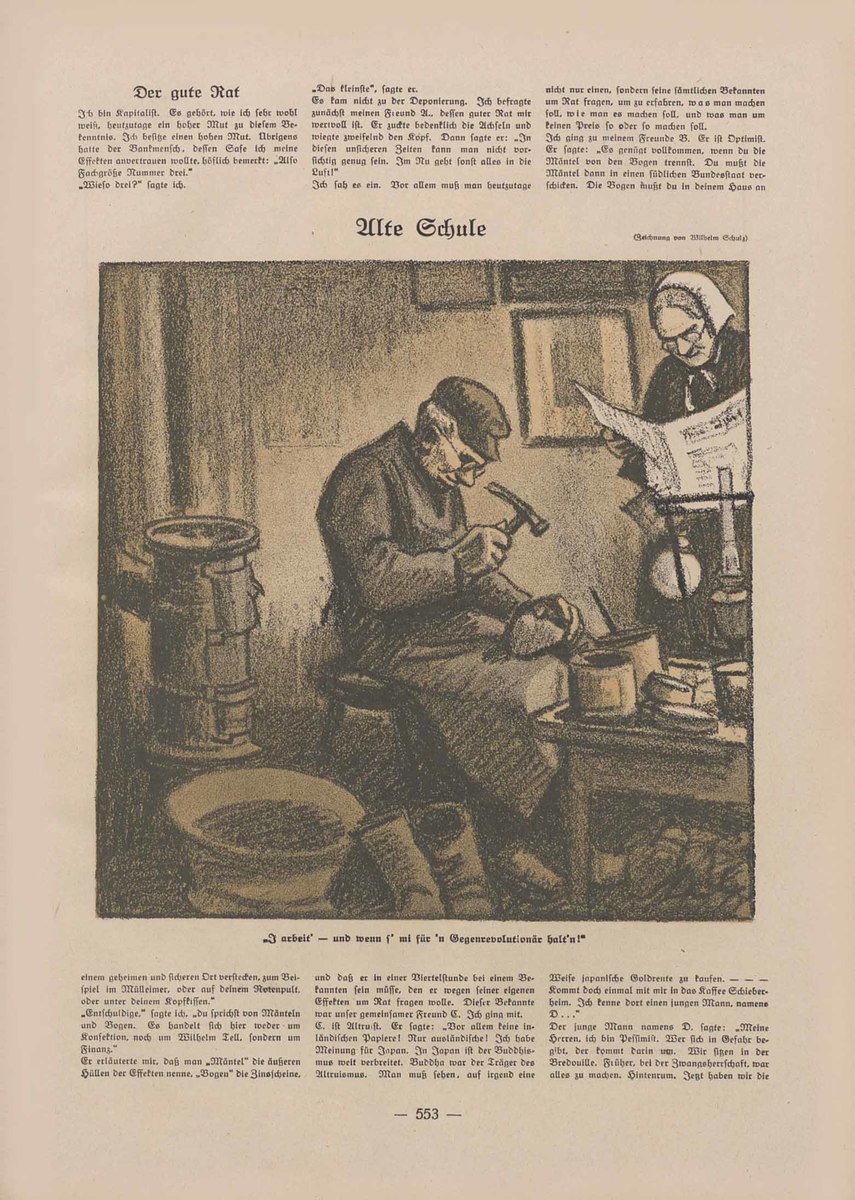Politicizing “German Virtues”: The Revolution of 1918 as “Non-Work” (1919)
Abstract
The magazine Der Simplicissimus supported the German war of aggression until the bitter end. It also rejected the revolution. Der Simplicissimus used work, as a category, to send a message about appropriate behavior during times of revolutionary upheaval. In this 1919 drawing, Wilhelm Schulz stylized masculine, manual labor as a traditional (“old school”) German virtue and guarantor of order; he juxtaposed it with the revolutionary actions of industrial laborers (“non-work”).
Source

Source: Wilhelm Schulz, Alte Schule: “I arbeit’ – und wenn s’ mi für ‘n Gegenrevolutionär halt’n!,” Simplicissimus, Jg. 23, H. 44, 28. January 1919, p. 553. Available online at: http://www.simplicissimus.info/index.php?id=5
Recommended Citation
Politicizing “German Virtues”: The Revolution of 1918 as “Non-Work” (1919),
published in: German History Intersections,
<https://germanhistory-intersections.org/en/germanness/ghis:image-267>
[February 05, 2026].